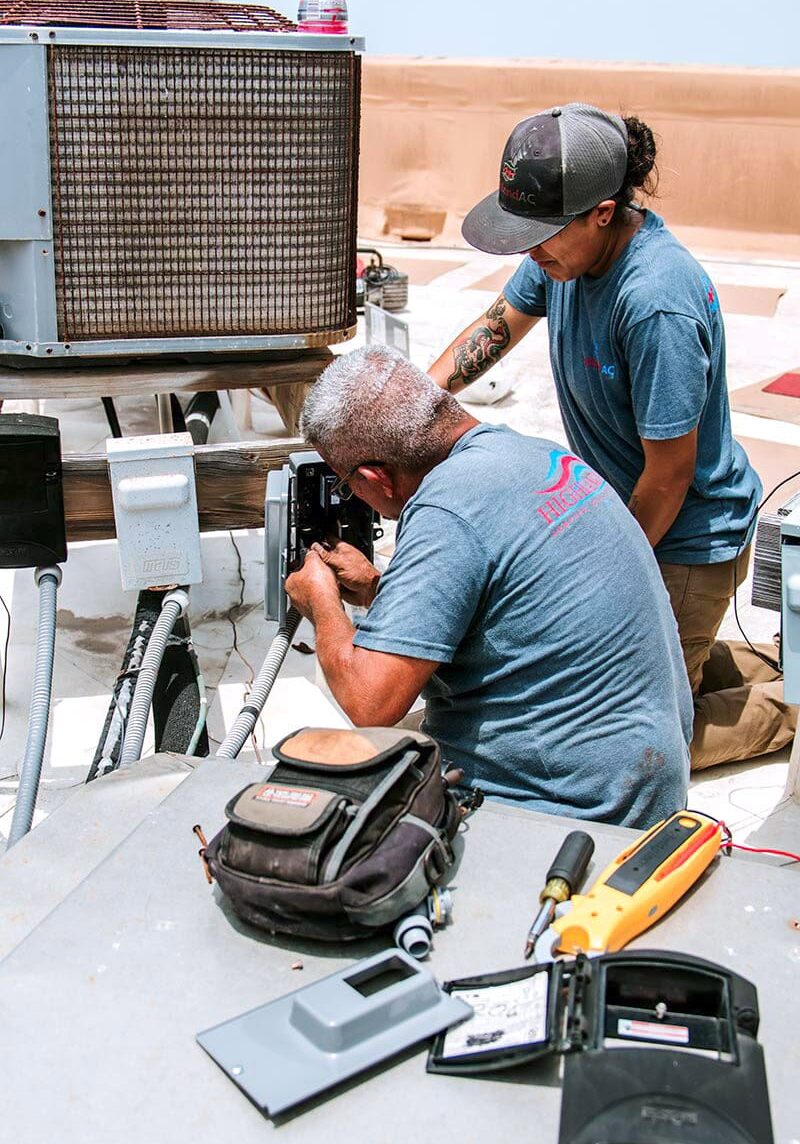One of the most common debates homeowners face is whether it’s better to shut off the HVAC system completely when leaving the house or to leave it running at a higher or lower temperature. While turning it off might seem like the obvious money-saver, the reality is more nuanced. Your HVAC system is designed to maintain balance, and how you manage it when you’re away can directly impact your comfort, energy bills, and the lifespan of the equipment.
The Problem with Turning It Off Completely
When you shut off your HVAC, the temperature inside your home begins to swing drastically with the outdoor conditions. In the summer, this means your house can heat up quickly, sometimes reaching uncomfortable or even unsafe levels. In the winter, temperatures can drop so low that you risk frozen pipes.
The bigger issue is what happens when you turn it back on. Your HVAC now has to work much harder and for much longer to bring the entire home back to your set comfort level. That sudden surge of strain can eat up the energy savings you thought you gained while it was off. Over time, repeatedly shutting it off and forcing it to recover can wear down your system and shorten its lifespan.
Why Letting It Run Constantly Isn’t Ideal Either
On the flip side, keeping your HVAC running at your normal comfort temperature while you’re gone isn’t efficient. You’re essentially paying to cool or heat an empty house. This approach leads to higher energy bills without any added benefit.
The Smarter Middle Ground: Adjust the Thermostat
The best solution is to adjust your thermostat when you’re away instead of shutting the system off entirely. In the summer, raising the thermostat by 5–10 degrees reduces how often your air conditioner cycles, saving energy while still preventing your home from getting excessively hot. In the winter, lowering the thermostat by a few degrees can deliver similar savings while avoiding the risks of freezing or overworking the furnace later.
The Power of Smart and Programmable Thermostats
Technology makes this balance easier than ever. A programmable thermostat lets you set schedules, so your system automatically adjusts while you’re away and then returns to your comfort setting before you get home. Smart thermostats take it further by learning your patterns and even adjusting based on weather conditions. These small changes can lead to significant savings on your monthly utility bills.
Comfort, Cost, and System Health
Ultimately, the choice isn’t simply on or off. It’s about finding the right balance between comfort and efficiency. By adjusting your thermostat instead of shutting the system down, you protect your equipment from unnecessary strain, keep your home safe and comfortable, and lower your energy bills in a way that makes sense long term.
So, if you’re planning to be away for a while, don’t flip the switch to “off.” Set your thermostat wisely and let your HVAC do its job efficiently. Your home, your wallet, and your system will all be better off.
Would you like me to expand this into a longer evergreen blog post (1000–1500 words) with homeowner tips, cost-saving stats, and expert advice from HVAC pros? That way, it could double as SEO content for Highland AC.
If you need professional help with your HVAC system maintenance, repair or installation, please give us a call.

